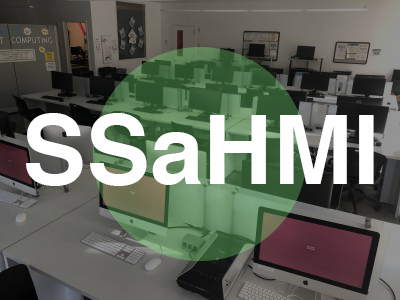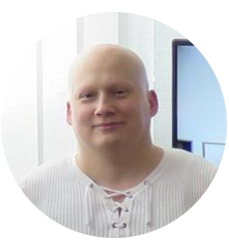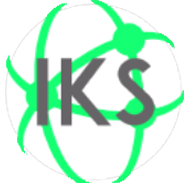About the subject

Supervision systems and HMI (Human Machine Interface)
TEACHER : Ing. Peter Papcun, PhD
Analysis of processes and services in a modern and intelligent digital world. Work with SCADA / HMI, MES, CPS, MPI systems. Introduction to the topic of modern operators Operator 4.0, Health & HomeCare 4.0.
Description
Providing knowledge and practical skills in the analysis of processes and services in the modern intelligent digital world, anpr. enterprise and services. Modeling, simulation and design of middle layers of their hierarchical information-control systems with emphasis on remote supervision (supervision) systems – SCADA / HMI, MES, CPS, MPI with the greatest regard for the interaction between the machine (environment) and man – HMI. Students will be able to creatively use and design the latest software, hardware and communication systems, platforms and services for general and case solutions of real management tasks (control, supervision, data collection and analysis, intelligent support, communication with the environment, reports and analyzes, artificial intelligence on border of the Internet network). Graduates will get acquainted with the topic of modern process operators (Operator 4.0), nurses (Health & HomeCare 4.0), which will be able to solve after completing the course. They will learn about the latest techniques and applications of artificial intelligence in HMI interactions (images and vision, virtual reality, augmented reality, holograms, wearable devices).
Subject syllabus
- Basic concepts, Industry 4.0, digital enterprise, smart Health & HomeCare, models and simulations, reference architectures RAMI 4.0, IIRA, hierarchical, IoT and mesh network systems, informatics, digital twin
- Informatics and artificial intelligence on the edge of the Internet, human-cyber-physical systems, Smart systems and edge, fog and cloud in digital enterprise and services
- Analysis of systems – devices, processes, data, position and interoperability of man with physical and digital and intelligent environment,
- Intermediate levels of management and informatics in systems, SCADA / HMI (Supervisory Control and Data Acquisition / Human Machine Interface), MES (Manufacturing Execution Systems), CPS (Collaboration Production Systems) and MPI (Manufacturing and Production Intelligence),
- Basic functions of classic SCADA / HMI systems:
- data collection, protocols, databases of data from real processes, data streams,
- various user roles, security, monitoring and control panels, supervisory tele-control, alarms, events, activity logging
- animation, technological views, scripting, real and historical trends, news
- Man in the digital world – HumanCPS, HMC interoperability, Operator 4.0, Health Carer 4.0, symbiosis with the physical and digital environment, cognitive support, visual 2D and 3D support, holograms, wearable devices
- IoE and IoT gates and hubs in smart systems (IIoT, IoT), edge and fog in the digital world
- HMI design principles – ergonomic and psychological aspects, screen layout, colors, commands, tags – international recommendations and standards, UIX – user experiences, other types of interactions and intelligent support
- SCADA / HMI systems – tag, object, component, distributed, edge, cloud, with local, remote (internet) or mobile user access
- Multilayer software architectures SCADA / HMI – edge and cloud services, platforms, application, database and communication servers and their clients, publish-subcribe
- Other SCADA / HMI functions – machine learning, vision, statistical process control, analysis and discovery of knowledge from current and historical data, intelligent decision support, reporting and online analysis
- Digital twin – virtual, augmented and mixed reality, 2D and 3D visualization, 3D graphics, holograms.
- Connections with big data and robotics in the digital world and Industry 4.0 / Smart Industry
Syllabus list
Lector

prof. Ing. Iveta Zolotová, CSc.
Proffesor
- iveta.zolotova@tuke.sk
Instructor

Ing. Peter Papcun, PhD.
ASSISTANT PROFESSOR
- peter.papcun@tuke.sk

